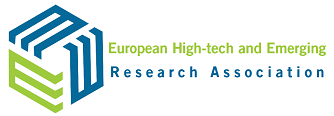Usefulness of Our Newly Designed Supplements for Reducing the High Risk of Pancreatic Cancer
2 Department of Neurosurgery, Iwamisawa municipal central Hospital, 9-7-2 Iwamisawa 068-8555, Hokkaido, Japan
3 Department of Cellular and Molecular Biology, Hiroshima University, 1-2-3 Katsumi, Minami-ku, Hiroshima 734-8553, Japan
Early detection of pancreatic cancer became possible by analyzing micro RNA (miRNA) from peripheral blood. We report our new preventive intervention method to reduce the risk of pancreatic cancer by using our original supplements for patients with high risk of pancreas-bearing cancer.
The risk determination of pancreatic cancer by using miRNA from blood was examined, and it was investigated whether it was effective to decrease the high risk of pancreatic cancer by using supplements that we newly devised.
For 14 adults who are not sick, the miRNA was extracted from the blood. They consisted of 7 men and 7 females, aged between 64 and 78 years old, averaging 67.6 years old. The encompassing analysis was performed using the next generation sequencer, and the risk of pancreatic cancer was calculated as expression score (ES). After confirming the absence of visible tumor, three months of our supplements (P-glucan and Methyl-resveratrol) were subjected to take.
Then the risk determination was carried out repeatedly by analyzing miRNA from blood samples. Changes in tumor-bearing risk treated by our tumor risk-reduction supplements were evaluated by ES calculated by next Generation sequencer before and after intervention and examined by Wilcoxon test.
By the proactive intervention method of the tumor-bearing reduction supplements, the expression scores, in 11 cases (79%) in 14 cases, were reduced significantly (Wilcoxon test; p<0.0052) after taking supplements. Furthermore, 14 cases were divided into A group (N=8) who showed higher ES than the healthy mean average, and B group (B=4) who showed lower ES than the mean average of healthy persons. In A group 8 out of 8 (100%) showed significant (p<0.009) reduction of ES. While, in group B, no significant reduction of ES were obtained(p=0.465.
For those who have high risk of pancreatic cancer, we found it possible to reduce ES perfectly by means of our newly designed supplements. This shows an effective practice of preemptive medicine.
Keywords: microRNA, Pancreatic Cancer, Cancer Risk, Supplements, Preemptive Medicine
Full Text
e-Presentation
|
|
|
|






